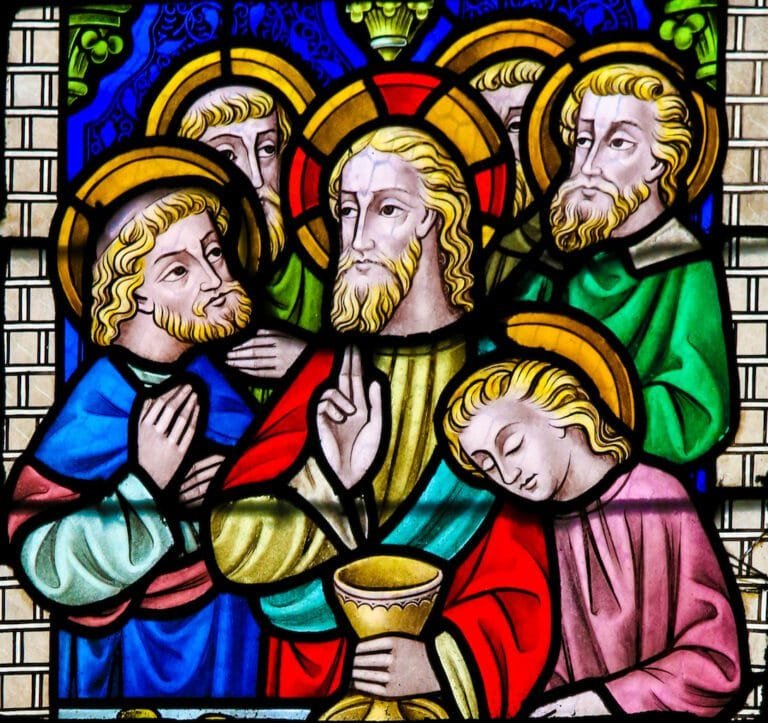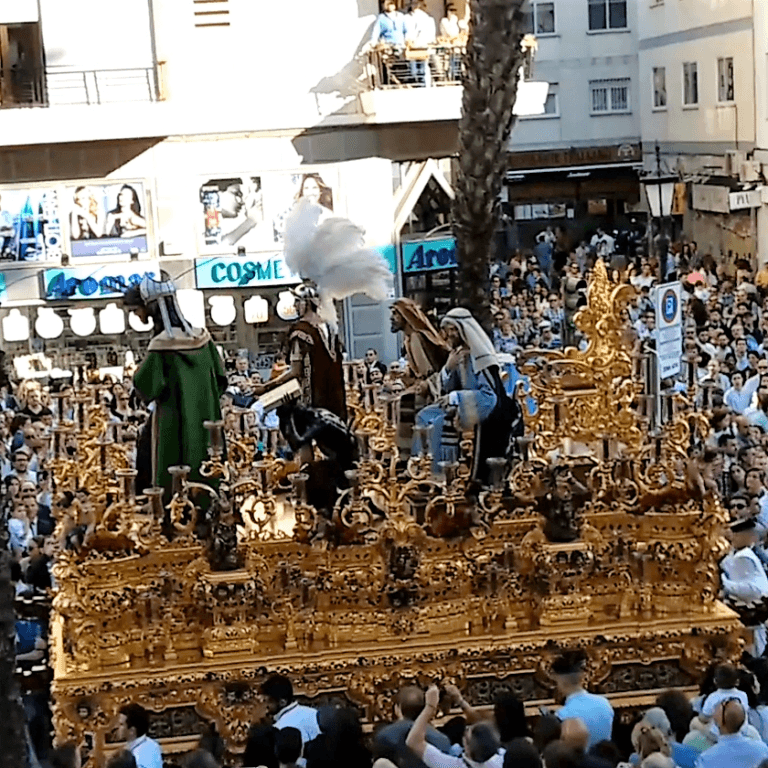HOLY TUESDAY READINGS AND REFLECTION: JESUS PREDICTS JUDAS’ BETRAYAL AND PETER’S TRIPLE DENIAL.
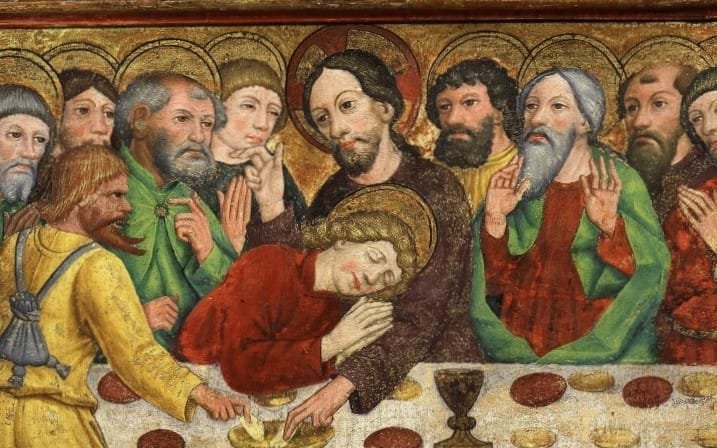
READING I
Is 49:1–6
Hear me, O islands, listen, O distant peoples. The Lord called me from birth, from my mother’s womb he gave me my name. He made of me a sharp-edged sword and concealed me in the shadow of his arm. He made me a polished arrow, in his quiver he hid me. You are my servant, he said to me, Israel, through whom I show my glory.
Though I thought I had toiled in vain, and for nothing, uselessly, spent my strength, yet my reward is with the Lord, my recompense is with my God. For now the Lord has spoken who formed me as his servant from the womb, that Jacob may be brought back to him and Israel gathered to him; and I am made glorious in the sight of the Lord, and my God is now my strength! It is too little, he says, for you to be my servant, to raise up the tribes of Jacob, and restore the survivors of Israel; I will make you a light to the nations, that my salvation may reach to the ends of the earth.
RESPONSORIAL PSALM
R. I will sing of your salvation.
In you, O Lord, I take refuge;
let me never be put to shame.
In your justice rescue me, and deliver me;
incline your ear to me, and save me.
R. I will sing of your salvation.
Be my rock of refuge,
a stronghold to give me safety,
for you are my rock and my fortress.
O my God, rescue me from the hand of the wicked.
R. I will sing of your salvation.
For you are my hope, O Lord;
my trust, O God, from my youth.
On you I depend from birth;
from my mother’s womb you are my strength.
R. I will sing of your salvation.
My mouth shall declare your justice,
day by day your salvation.
O God, you have taught me from my youth,
and till the present I proclaim your wondrous deeds.
R. I will sing of your salvation.
VERSE BEFORE THE GOSPEL
Hail to our king, obedient to his Father, he went to his crucifixion like a gentle lamb.
GOSPEL
Jn 13:21–33, 36–38
Reclining at table with his disciples, Jesus was deeply troubled and testified, “Amen, amen, I say to you, one of you will betray me.” The disciples looked at one another, at a loss as to whom he meant. One of his disciples, the one whom Jesus loved, was reclining at Jesus’ side. So Simon Peter nodded to him to find out whom he meant. He leaned back against Jesus’ chest and said to him, “Master, who is it?” Jesus answered, “It is the one to whom I hand the morsel after I have dipped it.” So he dipped the morsel and took it and handed it to Judas, son of Simon the Iscariot. After Judas took the morsel, Satan entered him. So Jesus said to him, “What you are going to do, do quickly.” Now none of those reclining at table realized why he said this to him. Some thought that since Judas kept the money bag, Jesus had told him, “Buy what we need for the feast,” or to give something to the poor. So Judas took the morsel and left at once. And it was night.
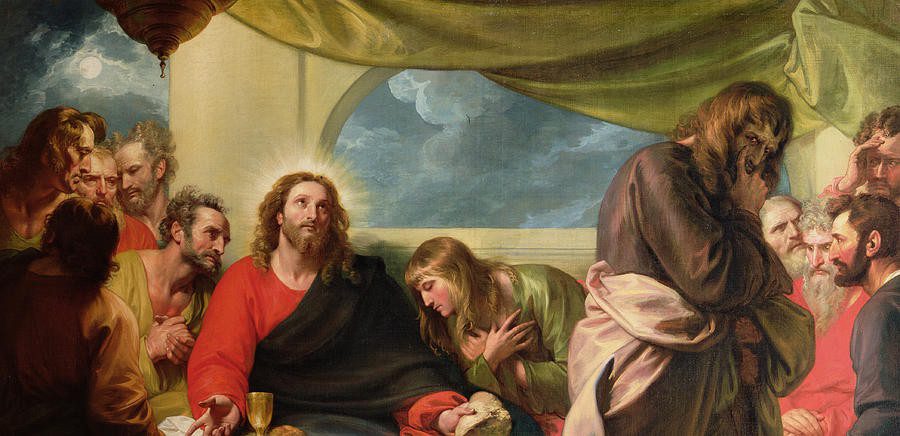
When he had left, Jesus said, “Now is the Son of Man glorified, and God is glorified in him. If God is glorified in him, God will also glorify him in himself, and he will glorify him at once. My children, I will be with you only a little while longer. You will look for me, and as I told the Jews, ‘Where I go you cannot come,’ so now I say it to you.”
Simon Peter said to him, “Master, where are you going?” Jesus answered him, “Where I am going, you cannot follow me now, though you will follow later.” Peter said to him, “Master, why can I not follow you now? I will lay down my life for you.” Jesus answered, “Will you lay down your life for me? Amen, amen, I say to you, the cock will not crow before you deny me three times.”
Below you have some excerpts from the Commentary to the Gospel of St. John from the Navarre Bible.
Christ’s sadness is proportionate to the gravity of the offence. Judas was one of those whom Jesus chose to be an Apostle: he had been on intimate terms with him for three years, he had followed him everywhere, had seen his miracles, had heard his divine teaching, and experienced the tenderness of his affection. And despite all that, when the moment of truth comes, Judas not only abandons the Master but betrays him and sells him.
- Betrayal by an intimate friend is something much more painful and cruel than betrayal by a stranger, for it involves a lack of loyalty. The spiritual life of the Christian is also true friendship with Jesus; this means it is based on loyalty and uprightness, and on being true to one’s word.
- Judas had already decided to hand Jesus over and had made arrangements with the chief priests (cf. Mt 26:14; Mk 14:10-11; Lk 22:3-6). Temptation had been burrowing its way into Judas’ heart for some time back, as we saw at the anointing in Bethany when he protested against Mary’s loving gesture; St John commented in that connexion that he did it not out of love for the poor but because he was a thief(cf. Jn 12:6).
Once again Peter in his simplicity and sincerity tells his Master that he is ready to follow him even to the point of dying for him. But he is not yet ready for that. Our Lord, St Augustine comments, “‘establishes here a delay; he does not destroy the hope, indeed he confirms it by saying, ‘You shall follow afterwards! Why are you in haste, Peter? As yet the rock has not made you strong inwardly: do not be brought down by your presumption. Now you cannot follow me, but do not despair: later, you will’” (In Ioann. Evang., 66, 1).
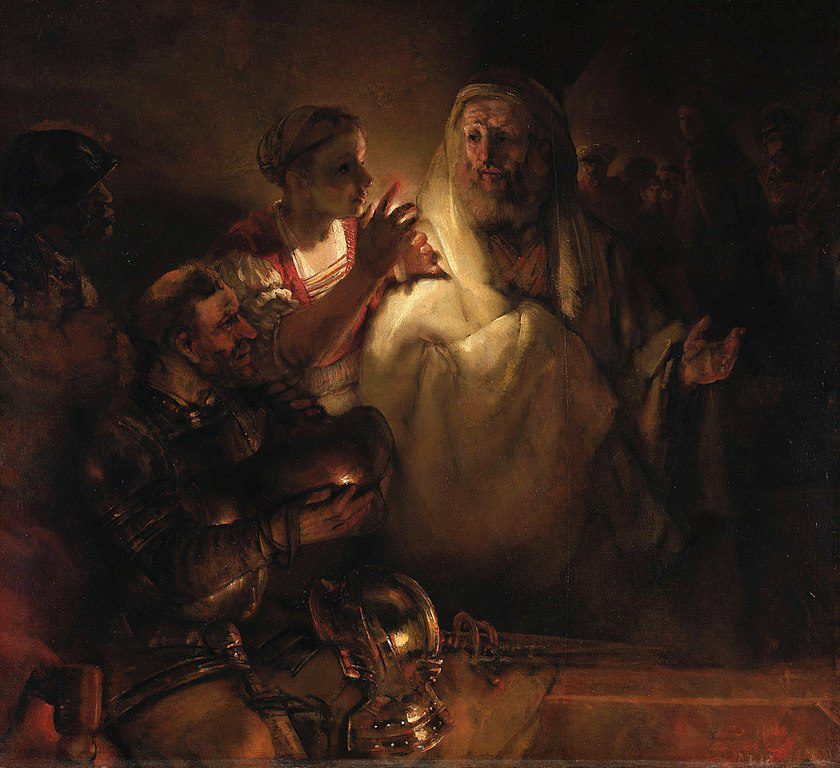
Rijn Museum/wikipedia
- Peter had certainly meant what he said, but his resolution was not very solid. Later on he would develop a fortitude based on humility; then, not considering himself worthy to die in the way his Master did, he will die on a cross, head downwards, rooting in the soil of Rome that solid stone which endures in those who succeed him and forming the basis on which the Church, which is indefectible, is built.
- Peter’s denials, which are signs of his weakness, were amply compensated for by his profound repentance. “Let everyone draw from this example of contrition, and if he has fallen let him not despair, but always remember that he can become worthy of forgiveness” (St Bede, In Ioann. Evang. expositio, in loc.).
GOSPEL COMMENTARY
Commentary
Already at the threshold of the Passion, the liturgy invites us to consider how far Christ’s love for us reaches. Jesus has spoken repeatedly about this moment, although not even his closest disciples have been able to understand what he meant. But the apostle John has grasped the meaning of these events in a very special way. The offering that our Lord is about to make is an offering of pure love for all men and women of all times, even for those who are ignorant of that love, for those who despise it, and for the one who is going to hand him over to death on the Cross. And through his self-giving, he will reveal to us the faithful love of God the Father for all mankind.
We see here Jesus’ love for Judas, whom he tirelessly seeks to spur to convert. The one who will betray his Master takes part in the Last Supper, and is not excluded. What’s more, Jesus himself offers him something to eat. Everything our Lord does is a call to his heart: an invitation to remember what he has experienced and to reflect on it. And also, not to despair when he realizes the outcome of his deeds. But Judas is lost; something inside him has hardened. Something has clouded his mind and heart, and he is unable to realize what he is doing. We will come to know this later, when we read his conversation with those to whom he hands over Jesus (cf. Mt 27:3-10). But he despairs in the end. For no one despairs suddenly: that situation is reached after many previous decisions.
We also see Jesus’ love for Peter, whose weakness is of another kind. Despite all the progress he has made, he still doesn’t know himself. Jesus wants his humility to be strengthened in order to make him a firm foundation for his Church. He wants Peter to become more aware of his weakness and not be scandalized by it, so that he doesn’t despair. For, as in that singular moment, life will continually bring us challenges that we can fail to meet. It is relatively easy to say that we will give our life for those we love. But what will happen when the time comes actually to do so? Saint Paul says that it is God who works in us to will and to act (cf. Phil 2:13). Only to the extent that Christ reigns in our hearts will we be able to make our love a reality to the point of giving our own life for the one we love. The Passion is a supreme teaching that we approach with the hope of learning what love is and receiving the strength to be able to love in the same way.
Juan Luis Caballero
https://opusdei.org/en-us/gospel/2024-03-26/
VIDEO REFLECTION
TOPIC: ARE YOU THE BETRAYER, THE DENIER OR THE FAITHFUL ONE OF JESUS?
Today’s gospel reading features three central characters – Judas, Peter and the beloved disciple of Jesus. Jesus had just washed the feet of His apostles. In the supper that follows, He dips the bread in the sauce and gives it to his apostles – in the culture of the time, it was a sign of affection. He signifies that whoever He gives the morsel to first is the one who will betray Him. And Judas was the man. We reflect on who among the three we identify with in our lives.
Stay updated: subscribe by email for free TO OUR NEW WEBSITE www.catholicsstrivingforholiness.org (PUT YOUR EMAIL IN THE SUBSCRIBE WIDGET).
We are also in www.fb.com/Catholicsstrivingforholiness. Kindly help more people in their Christian life by liking our page and inviting your family, friends and relatives to do so as well. Thanks in advance and God bless you and your loved ones! Fr. Rolly Arjonillo
